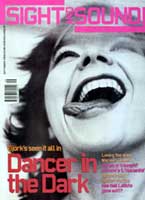Primary navigation

USA/Germany 2000
Reviewed by Mark Kermode
Our synopses give away the plot in full, including surprise twists.
Vietnam 1968. Approaching Ca Lu, US Marine Terry Childers executes a Vietcong soldier, terrifying the Vietnamese Colonel Cao into calling off an ongoing attack on his platoon, thus saving the life of wounded comrade-in-arms Hays Hodges.
Present day. Colonel Childers leads an airborne mission to the besieged US Embassy in Yemen. Having evacuated Ambassador Mourain and his family, Childers orders his men to open fire on a crowd of demonstrators, killing 63 of them. Back in the US, Childers is charged with murder and asks Hodges to be his defence council. National Security Adviser William Sokal destroys a tape from Yemen Embassy security cameras showing the crowd firing weapons and insists Childers was under fire only from rooftop snipers. Hodges travels to Yemen, where he meets children crippled by gunfire and observes the undamaged security camera from which the tape is now missing.
In court, prosecutor Mark Biggs paints a damning picture of Childers, calling Cao to testify as to his illegal warfare tactics. Hodges argues that Childers was protecting US territory, and that the disappearance of the surveillance tape points towards a cover-up. He gets Cao to agree that he would have done the same as Childers in Ca Lu were circumstances reversed. The jury finds Childers guilty of breach of the peace but not guilty of murder. Outside the courtroom, Childers and Cao salute one another.
After some years in the Hollywood wilderness, director William Friedkin returns to big box-office form with this unevenly edgy and exciting film. Pitched somewhere between thoughtful courtroom drama and gung-ho actioner, Rules of Engagement fires off in numerous directions simultaneously, hitting only some of its intended targets, but spraying enough explosively scattershot cinematic shells to draw flak away from the cracks in the design. Most of these cracks are the result of flaws in the screenplay which lacks a degree of cohesive credibility despite - or perhaps because of - several rewrites. But reliably rugged performances from Samuel L. Jackson as Childers, the US colonel accused of firing on innocent Yemeni demonstrators, and Tommy Lee Jones as Hodges, the officer charged with defending him, provide a solid foundation for the drama. Guy Pearce, whose cadaverous features are used to show-stealing effect, contributes a mincingly menacing turn as the prosecutor Biggs and a brace of well-chosen cameos add international spice, most notably Amidou (seen previously in Friedkin's underrated Sorcerer, 1977), whose melancholy gravitas lends a powerful emotional pull to his few fleeting scenes.
As is usual with a Friedkin film, Rules of Engagement attracted a fair deal of controversy when it was released in the US. Public battles between James Webb (who served in Vietnam and receives a story credit on Stephen Gaghan's final screenplay) and military technical advisor Dale Dye were reportedly patched up during production, thus side-stepping potentially damaging claims of inauthenticity. Later, skirmishes flared between the film-makers and Yemeni officials who condemned an allegedly racist bias, provoked doubtless by the use of such provocative sights as a little Arab girl brandishing a machine gun or a Vietcong colonel saluting an American officer.
It is ironic, then, that a film which has been labelled racist should be distinguished by a cinematic gaze which lavishes so much love on its non-US locations, far more, indeed, than on its American ones. Nicola Pecorini's haunting views of Morocco (doubling for Yemen) provide the visual core of the film, showcasing Friedkin's flair for the exotic. Like the lyrical Iraqi opening sequence in Friedkin's The Exorcist (1973), the long-lensed images of Arabic faces and facades in Rules give the impression of observation without intrusion. Even during the action-packed siege sequence, Friedkin seems more interested in shooting the big picture than nailing the specifics of the crossfire, unlike the Vietnam sequence (shot with aplomb entirely in North Carolina), in which the location is little more than a bland canvas on which to paint the bloody violence of warfare.
For the courtroom sequences, William Fraker displaces Pecorini (who himself replaced an uncredited Dariusz Wolski), lending a more polished sheen to the close-up showdowns. Ironically this underlines the protagonists' claim that clean-cut legal niceties have little to do with the nuts-and-bolts nastiness of the battlefield. Although this change to hiscrew was unplanned, Friedkin seems to thrive on the tensions it produced, conjuring a crackling sense of conflict between the rules and realities of engagement. It is on this level that Rules works best, reminding us what an exceptional eye the director possesses, and how much his film-making has depended on gut reaction rather than calculatedly clinical cutting.
It is a shame, therefore, that for all his visual brilliance, Friedkin rarely finds scripts worthy of his attention. Although Webb and Gaghan's work is an improvement on the drooling drivel of Joe Eszterhas' Jade (1994), it is a far cry from the rigorous writing of William Peter Blatty's The Exorcist, the free-form improvisation of The French Connection (1971) or even the incohesive rambling of Friedkin's own script for Cruising (1980). Perhaps it's a mark of changing audience expectations that a film which would doubtless have ended in despair and disarray in the 70s (witness the detective Doyle's conclusively hopeless off-screen gunshot in Friedkin's police thriller The French Connection) must now win viewer approval by neatly tying up all its loose ends. Still, although the arrival may be ultimately unsatisfying for die-hard cynics, there is enough about this journey that is unsettling and eye-opening to make it worth the fare.